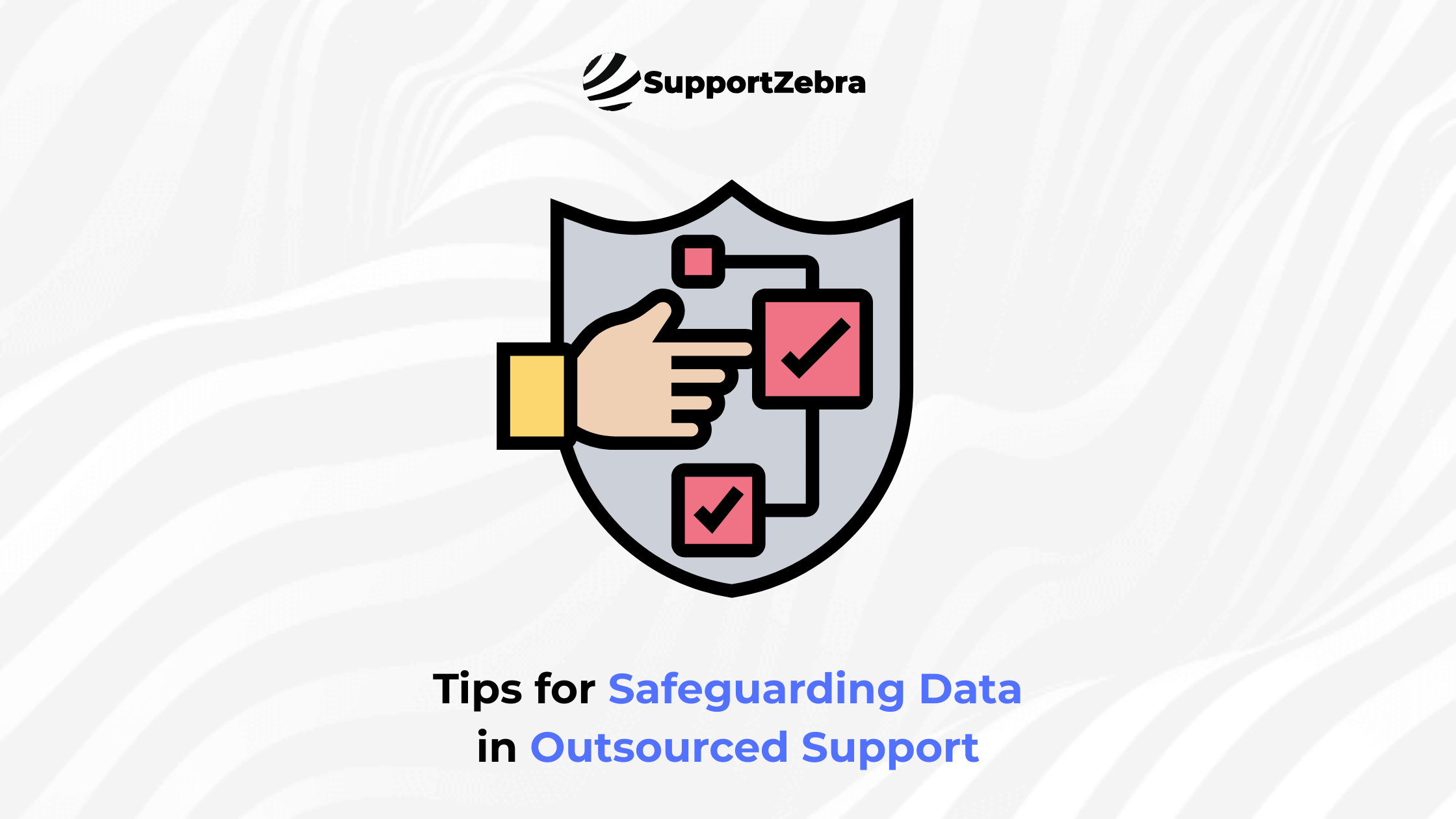The Hidden Dangers of Outsourced Support and How to Defend Your Data
- Outsourcing support can improve efficiency, but it also introduces serious data security and compliance risks if not managed properly.
- Thoroughly vet service providers and formalize responsibilities with clear contracts and NDAs to maintain control over sensitive data.
- Strong security measures like encryption, access controls, and multi-factor authentication are essential for protecting customer information.
- Ongoing monitoring, audits, and employee security training help minimize risks and preserve customer trust over time.
What risks does outsourced support pose to data security? Protecting sensitive information becomes essential as businesses increasingly rely on third-party services for customer support.
While outsourcing can enhance efficiency and reduce costs, it also introduces risks like data breaches and unauthorized access. Understanding how to secure data is crucial for maintaining trust and compliance.
This blog offers vital tips for safeguarding data in outsourced support, enabling informed decision-making in a complex environment.
The Risks of Outsourced Support
Outsourced support can bring many benefits, but it also has various risks that companies must consider carefully.
- Loss of Control Over Data Management
Outsourcing support services can lead to reduced control over data handling, making it challenging to protect sensitive information according to company standards.
- Risk of Data Breaches from Weak Security
Outsourced providers may lack robust security measures, increasing the risk of data breaches and unauthorized access, especially if they don’t adhere to strict cybersecurity practices.
- Challenges with Data Protection Compliance
Outsourcing complicates compliance with data protection laws like GDPR and HIPAA, as it can blur responsibility for regulatory adherence, potentially leading to legal issues and penalties.
- Damage to Reputation After a Data Breach
A data breach involving outsourced services can severely damage a company’s reputation, eroding customer trust and loyalty, especially in today’s fast-paced digital environment.
By understanding these risks, organizations can proactively mitigate potential issues and protect their data when engaging in outsourced support.
1
Carefully Evaluate Your Service Providers
It’s really important to evaluate service providers before outsourcing. Check their skills and how they protect data, like encryption and access controls, to ensure they meet your standards. Look for certifications such as ISO 27001 or SOC 2 and read client reviews to build trust. This process helps reduce risks and keeps sensitive information safe.
2
Create Solid Contracts and NDAs
Draft solid contracts and non-disclosure agreements (NDAs) to protect sensitive information. Clearly outline who is responsible for data protection and how to prevent breaches. NDAs help maintain confidentiality by limiting what service providers can access to only what’s necessary. This boosts security and fosters trust.
3
Use Encryption and Access Controls
Strong encryption and strict access controls safeguard sensitive data. Implement TLS and AES to secure data both in transit and at rest. Restrict access using role-based access control (RBAC) and multi-factor authentication (MFA). Regularly check access logs to ensure compliance and improve data security.
4
Continuously Monitor and Audit Providers
Monitor and audit your outsourced providers regularly to ensure they follow security protocols. Track data access and system performance. Conduct audits to evaluate the effectiveness of their security measures and whether they comply with contracts and regulations. Consider using external audit firms for an impartial review.
5
Educate Employees and Promote Security Awareness
Train your employees on data handling and security protocols to keep sensitive information safe. Keep them updated on new threats and encourage open discussions about security concerns. Combining training with strong technical measures creates a solid base for protecting data.
Putting Your Data Security Plan into Action

Outsourced support can be risky, so organizations need to protect their data. Key steps include carefully checking service providers, creating firm contracts, using encryption, doing regular audits, and training employees. These actions help reduce risks, ensure data protection rules are followed, and build trust with customers and stakeholders.
At SupportZebra, we prioritize data security in our outsourcing solutions. To protect sensitive information, we employ strong encryption and strict access controls, including multi-factor authentication and role-based permissions. Our ongoing monitoring and auditing processes ensure compliance and address any potential risks.
Let’s tackle the challenges of outsourcing together. Contact SupportZebra today to learn how our expert services can enhance your support needs.
Frequently Asked Questions
Customer personal data (PII), account credentials, payment details, health information, and internal business data are most at risk, especially when support agents access multiple systems to resolve issues.
Yes, if proper safeguards are in place, such as PCI-DSS compliance, data tokenization, limited access controls, and secure payment processing systems that prevent agents from viewing full financial details.
Absolutely. Background checks and identity verification help reduce insider threats, ensure trustworthiness, and confirm that agents handling sensitive data meet security and compliance standards.
The core security principles are the same, but differences arise due to local regulations, enforcement standards, cultural practices, and infrastructure maturity, making strong policies and consistent oversight essential regardless of location.
They can minimize risk through role-based access controls, continuous monitoring, regular audits, employee training, and enforcing the principle of least privilege to limit unnecessary data exposure.
Yes. AI tools can pose risks if they store, process, or learn from sensitive data without proper safeguards, making it critical to vet AI vendors, control data inputs, and enforce strict usage policies.

